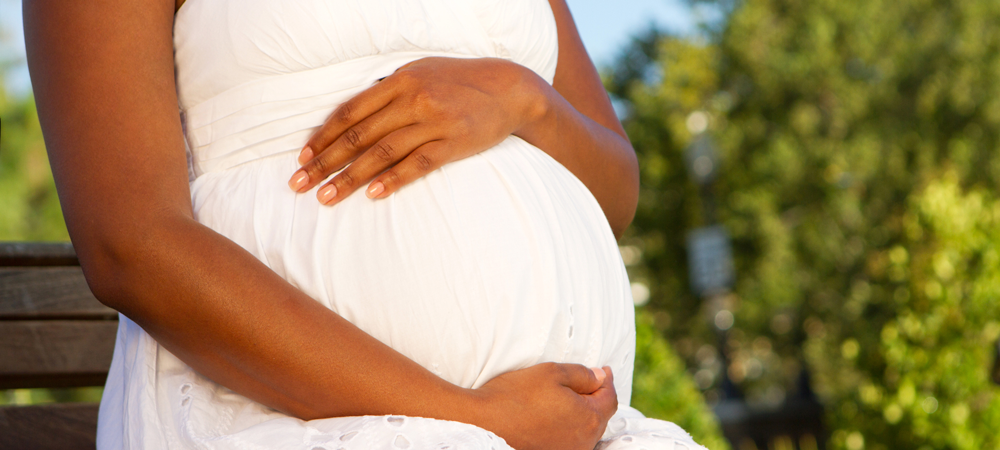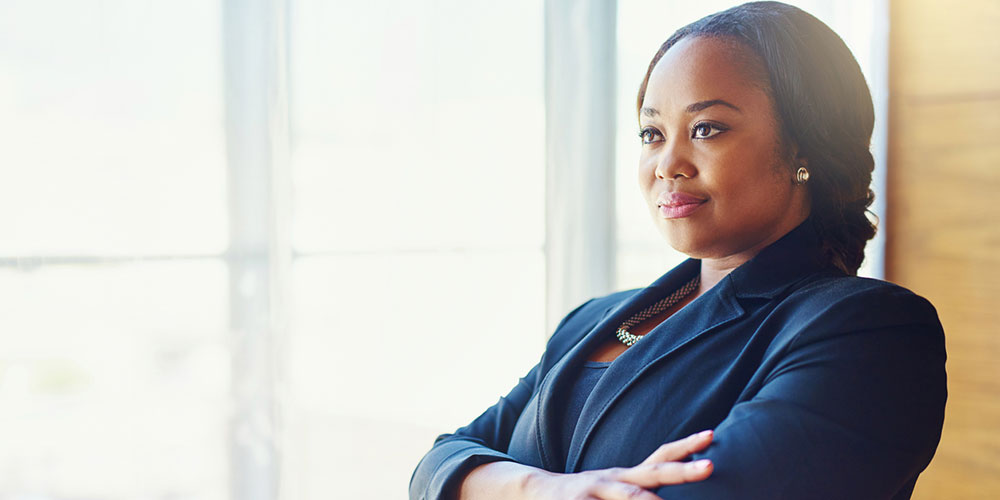
Fearing coronavirus, many rural black women choose to give birth at home
Video Courtesy of PBS NewsHour
Pregnant women in Tennessee, Arkansas and Mississippi have been calling nonstop to CHOICES Midwifery Practice in Memphis, but the center is booked.
The callers are terrified that they or their babies will contract the novel coronavirus if they deliver in hospitals. Some women live in rural areas far from hospitals and obstetrics units. The center’s clients are primarily black and other women of color.
“They’ve told us they’re going to risk it all and have an unassisted home birth,” said Nikia Grayson, a certified nurse midwife and director of perinatal services. “That’s very scary, and that’s what people are researching and seeing as a viable option.”
Many pregnant women are seeking out midwives to deliver their babies in homes or birthing centers rather than in hospitals, where they fear being exposed to the virus. But midwives and other maternal health experts say desperate women also are delivering without any medical assistance.
“It can go left real fast,” Grayson said.
Midwives across the country say they are stretched to accommodate additional deliveries because of the pandemic, while taking precautions to protect themselves and their clients. Midwives from Mississippi and Tennessee who deliver in homes are traveling to the rural areas around Memphis to help, Grayson said. But it’s dangerous to cross state lines without knowing where to go in an emergency.
The stakes are especially high for rural black women soon to give birth in Southern states. They have less access to health care providers and travel longer distances to care, while systemic racism and health care inequities put their lives at risk.
The coronavirus pandemic exposes a fragile health care system that already marginalized and traumatized pregnant black women, said Dr. Joia Crear-Perry, president of the National Birth Equity Collaborative.
“The intersectionality of being a black woman and that the rural South chose not to provide insurance coverage is a deadly combination for many,” Crear-Perry said.
In Mississippi, the state Department of Health should address the concerns of pregnant women and families and discourage unassisted home births, said Wengora Thompson, who manages the Jackson Safer Childbirth Experience, a project funded by Merck and the Kellogg Foundation.
 Thompson said a local doctor told her that a family had attempted a recent home birth to avoid local hospitals. The baby needed resuscitation and is in intensive care.
Thompson said a local doctor told her that a family had attempted a recent home birth to avoid local hospitals. The baby needed resuscitation and is in intensive care.“It’s important that they hear from some official body or some trusted source that this isn’t the best option,” Thompson said.
But even before this pandemic, some black women were reluctant to deliver their babies in hospitals, Grayson said. Experts point to systemic health care inequities and institutional racism.
Black women often delay prenatal care to avoid racist experiences with the health care system, and are more likely to experience racial discrimination, according to studies republished by the National Institutes of Health.
And when they express their concerns to medical professionals, they’re often not heard. Even tennis star Serena Williams had to demand a CT scan and blood thinner when she experienced shortness of breath following a cesarean section and feared she may have had a blood clot.
During the pandemic, hospitals such as the Kaiser Permanente Medical Group of Northern California are offering inductions to women near the end of their third trimester. The goal is to get healthy people out the door before hospitals are overwhelmed by a peak in coronavirus infections.
Advocates say it’s important for women to have choices, but also question whether women may feel pressured to induce pregnancy. They’re also concerned that an increase in inductions will lead to riskier births and premature infants.
Inductions don’t benefit all pregnant and birthing women, said Jamarah Amani, founder of the National Black Midwives Alliance. In a pandemic, some physicians take less time to explain a patient’s options, she said. Studies and first-person narratives underscore communication gaps, such as physicians spending less time with pregnant black women, dumbing down explanations and failing to fully answer questions.
“Once again,” Amani said, “we’re seeing a situation where the needs and rights of birthing people are being pushed to the side.”
Barriers to care
Among the Deep South states, only Louisiana expanded Medicaid under the Affordable Care Act to insure more low-income people. Many poor women have access to health insurance only when they are pregnant.
Black women are more likely to have pre-existing conditions, such as hypertension, diabetes and asthma, according to the National Center for Health Statistics and the U.S. Department of Health and Human Services. Those illnesses increase the risk of death from the coronavirus and may go undiagnosed prior to pregnancy.
The U.S. maternal and infant mortality rates are higher than in most developed countries and are hitting black women the hardest.
Black women are two-to-three times more likely to die from causes related to pregnancy than white women, regardless of income or education. The disparity increases with the mother’s age.
Black women’s babies are twice as likely to die, especially black babies born in rural areas, according to the federal Centers for Disease Control and Prevention.
There is little public demographic data on midwives. But black midwives and advocates say there are few black midwives in the South, where restrictions on midwifery make it more difficult to practice.
Certified professional midwives, or CPMs, who deliver in homes, often are left out of health care systems and face legal barriers to practice with autonomy.
Unlike certified nurse midwives who attend nursing school, CPM training is in out-of-hospital settings. In some states, Medicaid reimbursement for CPMs is insufficient, while private insurance may not cover their services.
Despite the barriers, midwifery care is proven to reduce rates of unnecessary interventions and improve outcomes for moms and babies. Advocates such as Crear-Perry say some black women choose home births to avoid over-medicalized care. They also fear the medical system and its legacy of mistreating blacks.
Some advocates are concerned that the challenges plaguing black Americans can’t be addressed if leaders don’t acknowledge black socioeconomic disparities. A senior state health official in Mississippi recently told reporters he did not know why COVID-19 appears to be disproportionately affecting blacks and deferred to other officials to explain.
“In a state as seeped in structural racism as Mississippi, the fact that someone of that stature wasn’t able to communicate that effectively and said they didn’t know was really alarming,” said Felicia Brown-Williams, Mississippi state director for Planned Parenthood Southeast Advocates.
With lower COVID-19 testing rates in states with larger black and poor populations, blacks who couldn’t be admitted to hospitals or lacked access to care are dying outside of hospitals, Crear-Perry said.
“The next level of teasing out this data is counting the deaths that are happening in homes,” Crear-Perry said. “I’m afraid that when we start doing that, we’re going to start seeing some maternal deaths as well because people are not making it to the hospital.”
Local influencers
More black midwives could be part of the solution. Black midwives have long been beloved matriarchs in their communities. As local influencers, they encouraged breastfeeding, delivered public health messages and instilled confidence. But over the past century, black midwives have been whittled down to a handful.
A century ago, thousands of midwives practiced in several Southern states. They attended more than two-thirds of the African American births in Alabama, Arkansas, Florida, Georgia, Louisiana, Mississippi and South Carolina.
But state efforts to professionalize midwifery and training that began in the 1920s, and a push for more hospital births under a physician’s care, precipitated a steep decline in their ranks. Alongside racist tropes that characterized black midwives as ignorant, superstitious and dirty, they were blamed for high rates of infant and maternal mortality.
In the late 1940s, Mississippi began to retire elderly midwives while also making it difficult to obtain or renew midwifery permits. By 1975, 98% of babies were delivered in hospitals, and there were 259 registered lay midwives. By 1982, there were 13, according to “Protect the Mother and Baby: Mississippi Lay Midwives and Public Health.”
In the South, Mississippi, Georgia and North Carolina are among at least 15 states where CPMs have no path to licensure. Georgia CPMs lost their ability to legally practice after the state’s rules changed in 2015, but Republican state Rep. Karen Mathiak has introduced a bill to license and regulate CPMs.
A CPM has filed a federal lawsuit against the president of the Georgia Board of Nursing because it’s threatened her with fines for publicly identifying herself as a midwife. She says the restriction violates her First Amendment rights.
For the first time in more than 40 years, Alabama began issuing licenses to its CPMs last year.
However, certified nurse midwives like Grayson in Memphis typically practice in birthing centers or hospitals, although she also does home births. They are legally recognized in all 50 states.
Grayson says she is the only midwife and local provider in Memphis who does home or hospital births. Her clinic will open Memphis’ first birthing center in June and is hiring more nurse midwives to meet local interest.
Florida is a model for what’s possible in the South and across the country, said Amani, the National Black Midwives Alliance founder. Florida provides educational paths to licensure and requires Medicaid and private insurance to cover midwifery care.
Of 200 licensed midwives in Florida, about 15 are black, Amani said. Some states have few black midwives who may legally deliver outside of hospitals and in homes, and others have none, according to Amani and other advocates.
More black women would choose home births if it weren’t so hard to find black midwives, said Shafia Monroe, a black midwife and consultant who’s led national efforts to increase the number of midwives and doulas of color. Medical professionals often don’t educate pregnant women on their options for midwifery care.
“For black people around the country, the majority don’t know what midwives do, or they’re afraid,” Monroe said.
OB-GYNs tend not to like home births because it’s not a part of their training, said Crear-Perry, who’s also an OB-GYN. “All we see is the catastrophe.”
Crear-Perry and others would like to see a health care system that embraces the model of midwifery care, which includes home visits, checkups and other personal touches. They also want better integration with existing health care systems to keep women safe, especially during the coronavirus crisis.
“The capacity of the midwives that are trained is already strained,” said Jennie Joseph, a British-trained midwife and founder of a midwifery school and birthing center in Winter Garden, Florida. “We might want to consider physicians even delivering outside of hospitals to maintain that safety for the mothers.”
This article first appeared on Mississippi Today and is republished here under a Creative Commons license.

